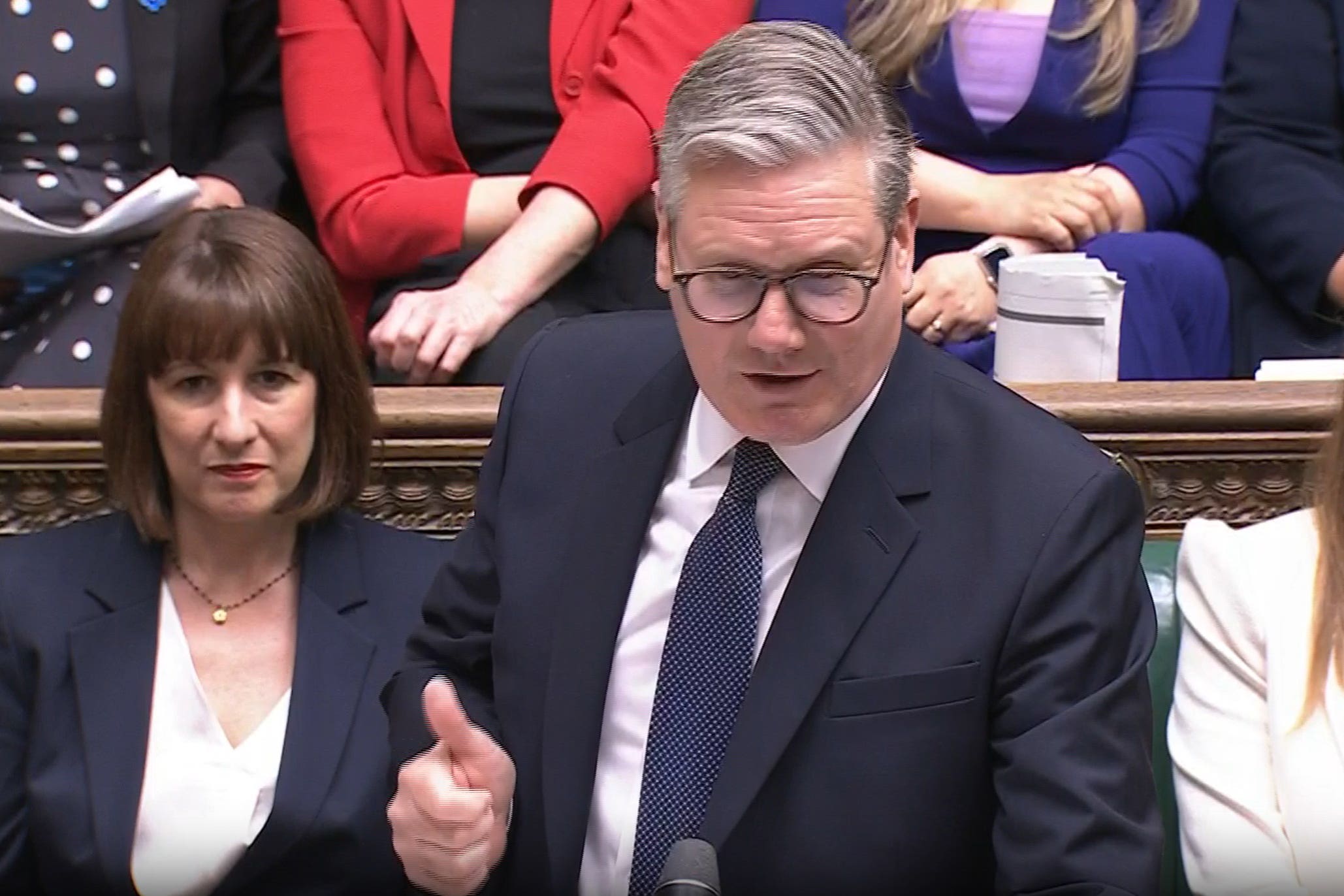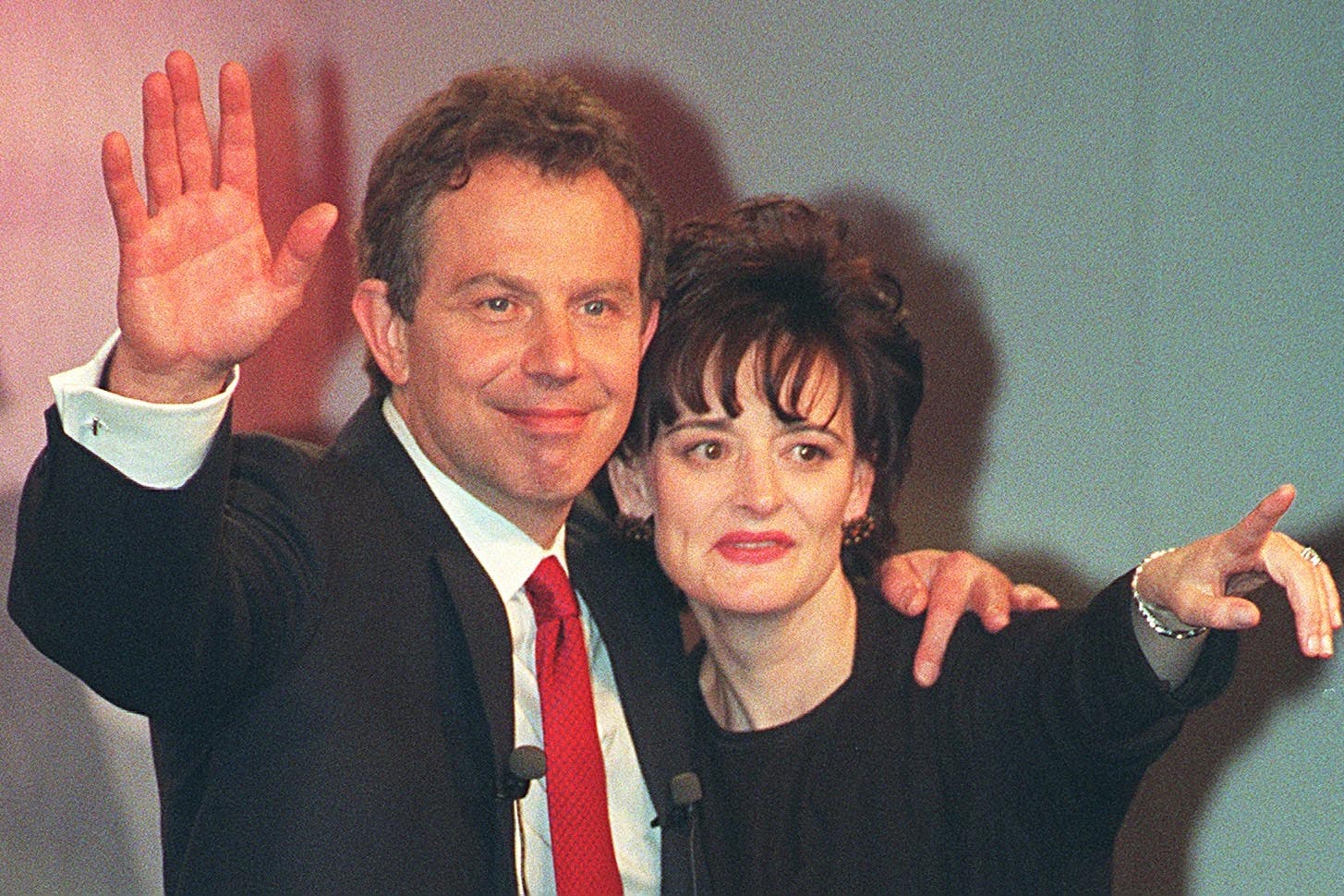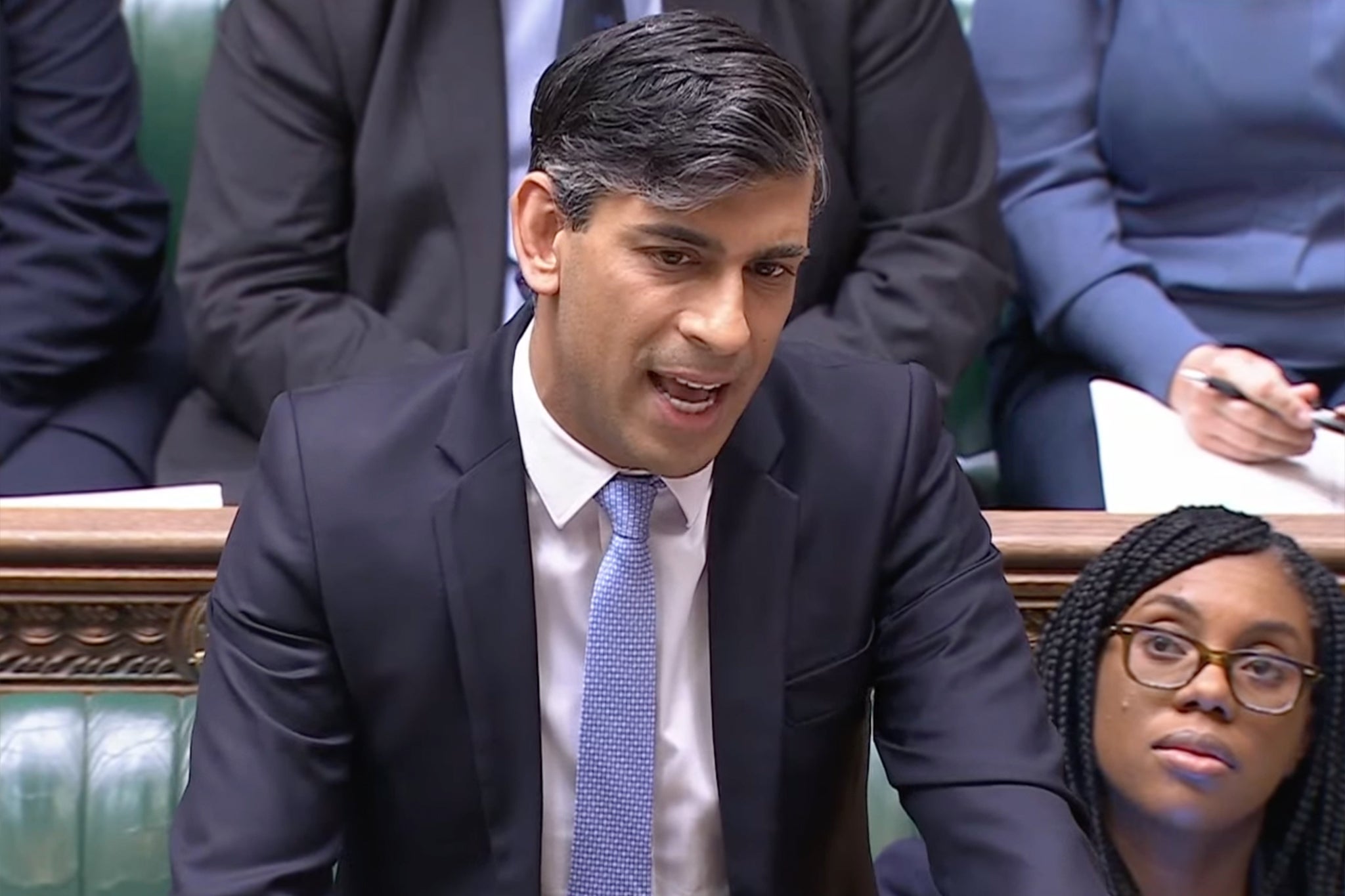Starmer’s presidential pitch for Downing Street as Labour’s heir to Blair
Leader launches personal campaign to become prime minister in echo of predecessor’s winning 1997 battle plan
Your support helps us to tell the story
From reproductive rights to climate change to Big Tech, The Independent is on the ground when the story is developing. Whether it's investigating the financials of Elon Musk's pro-Trump PAC or producing our latest documentary, 'The A Word', which shines a light on the American women fighting for reproductive rights, we know how important it is to parse out the facts from the messaging.
At such a critical moment in US history, we need reporters on the ground. Your donation allows us to keep sending journalists to speak to both sides of the story.
The Independent is trusted by Americans across the entire political spectrum. And unlike many other quality news outlets, we choose not to lock Americans out of our reporting and analysis with paywalls. We believe quality journalism should be available to everyone, paid for by those who can afford it.
Your support makes all the difference.Sir Keir Starmer is set to make a presidential pitch to become prime minister, drawing inspiration from Tony Blair in what is being billed as Labour’s general election campaign launch.
In a strategy that deliberately echoes the winning New Labour battle plan from 1997, Sir Keir is betting on himself to front Labour’s push to return to power after 14 years in the wilderness.
On Thursday, the party will unveil its most expensive advertising campaign since the last general election alongside a modern version of Blair’s “pledge card”, which will feature Sir Keir’s face and his personal six first steps for an incoming Labour government.
After Rishi Sunak said in his own keynote speech earlier this week that the election should not be fought on the basis of “Starmer versus Sunak”, Sir Keir has made it clear that he wants it to be a personal battle between the two men, centred on which of them is better able to run the country.
While Mr Sunak made his pitch around defence and security, highlighting the threat of nuclear war, Sir Keir hopes to strike a more personal tone. At Prime Minister’s Questions on Wednesday, he lampooned his opponent as “a jumped-up milk monitor” for his party’s efforts to ban civil servants from wearing rainbow lanyards.

It comes as Mr Sunak struggles to find a winning strategy, with Labour 24 points ahead in the polls and leading pollsters warning the prime minister that his focus this week on culture-war issues “will not save the Tories”.
Labour’s launch event will be in the key battleground of Essex, where many voters turned to Margaret Thatcher in the 1980s, then to Blair in 1997 before returning to the Tories in 2010.
A party spokesperson said there were “many battlegrounds we could have chosen from ... but we love Essex”.
The event will include the unveiling of a new billboard showing a picture of a serious-looking Sir Keir with his hair gelled back, jacket off, and sleeves rolled up ready for work. The spokesperson claimed that the image “reflects his belief in duty, service and patriotism”.
The picture of Sir Keir will also appear on new Blair-style pledge cards, where it will be accompanied by a list of the current leader’s “six first steps” for an incoming Labour government.

Sir Keir said: “These first steps make real our claim that a changed Labour Party is back in service of working people. They show our priorities, what we care about and what the British public cares about. Country first, party second.”
He added: “These first steps will make a real difference to people’s lives. If you’re waiting in pain for NHS treatment, if your child is at school and you want higher standards, if your local area is plagued by antisocial behaviour, if you want cheaper energy bills for good, these first steps show what a Labour government will do to help you.”
Asked if the presidential style of the launch was deliberate, the spokesperson said: “Yes, we made a choice to do that. We want to hear from someone who is a party leader. The candidate to be prime minister. He is putting his personal stamp on these first steps.”
The six pledges, which come on top of five missions unveiled last year, include delivering economic stability, with tough spending rules to be implemented and a strategy to grow the economy by keeping taxes, inflation and mortgages “as low as possible”.
Sir Keir will also promise to cut NHS waiting times, with 40,000 more appointments each week.
The steps also include a new Border Security Command to smash the criminal boat gangs – announced last week – and the creation of a publicly owned energy provider, to be called Great British Energy.
In addition, there will be a crackdown on antisocial behaviour, with the introduction of more neighbourhood police officers. And Labour will recruit 6,500 new teachers in key subjects.

Union leaders voiced concerns this week over workers’ rights, but a Labour spokesperson said the six first steps did not mean that other priorities, such as bolstering defence, would be ignored, adding that the six pledges could take a full five-year parliamentary term to deliver.
They were identified by the shadow cabinet rather than by focus groups, and are very personal to Sir Keir, the spokesperson said.
The Labour leader will be joined on Thursday by his deputy Angela Rayner and shadow chancellor Rachel Reeves, with economic stability at the top of his list of pledges.
The list seems to confirm a change in strategy, and is a long way from the 10 promises Sir Keir made when he was running to replace Jeremy Corbyn, but the spokesperson said these “first steps” and last year’s “missions” were designed to show that Labour “is a changed party” since the Corbyn years, and that it is “ready to serve the country”.
The spokesperson also insisted that there are no parallels with Mr Sunak’s five priorities, amid accusations that both of the main candidates hoping to be prime minister after the coming election are “boring”.
The spokesperson said: “There is a big difference [between Mr Sunak and Mr Starmer]. The reason we are talking about stability and growth is because we’ve seen such instability imposed on the country as an act of ideological recklessness, the price of which people are still paying every time they remortgage, or if their rent increases because the landlord has had to remortgage.
“In terms of the prime minister’s promises that he made, he’s not done very well on any of them. We’ve got NHS waiting lists touching 8 million, and they’ve gone up since he made that promise. And in terms of the small boats, of course, we’ve seen an increase in the first few months of this year.”

Join our commenting forum
Join thought-provoking conversations, follow other Independent readers and see their replies
Comments